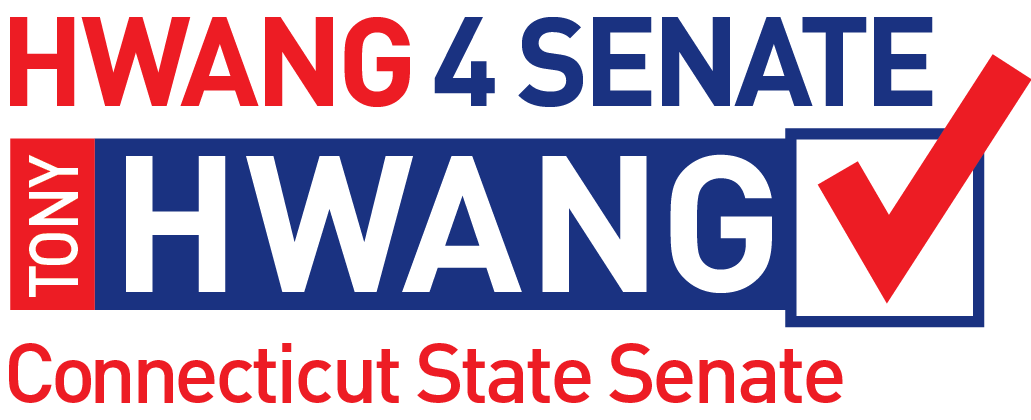Mixed messages on whether to Stay in School or opt for Virtual Learning has had a confusing and adverse impact on the education experience for students, while creating anxiety and stress to students/parents/caregivers and educators.
There are a number of words one could choose to summarize 2020. For many parents who were thrust into a role they never imagined they would select: frustration, anxiety and exhaustion.
The onset of the Covid-19 pandemic outbreak in March 2020 led to the initial statewide shutdown of all public schools by Governor Ned Lamont. While some would categorize it as an overreaction to a regional problem, others would laud it as a consistent policy that placed everyone on the same level.
As we made it through the summer, with tremendous efforts around mask wearing and social distancing practices, infection rates statewide hovered at or below 1%. As schools and colleges re-opened in the autumn, the unpredictable roller coaster ride began and is now exacerbated by the current resurgent infection data.
In June, our schools were initially guided by the CT State Department of Education (CTSDE) School Re-Opening Guidelines, the reality of actual implementation has been confusing with mixed results. Some schools re-opened for full time in-person learning, and some designed a hybrid plan that included part time in-person and part time remote learning. Private and parochial schools implemented their independent back to school criterias and protocols. Some parents opted to keep their students at home full time taking classes virtually or even unenrolling altogether to be homeschooled.
CTSDE, by not offering updated metrics or guidelines, instead preferring to allow each town, or school district, to choose their learning models based on differing threshold standards, has created an untenable and unpredictable environment for students, parents, teachers and local administrators. There is an infinite mix of scenarios that can change daily, leaving students and parents on high alert, suspecting that any school call or email could be the one that alters their family’s study/work/life balance.
There must be a statewide policy and leadership which includes defined metrics and guidelines for unique community challenges to determine if a district is open or closed or moves to an alternative means of teaching. The absence of such a statewide policy has widened the disparity in the educational experience for Connecticut’s students. In mid October, the Hartford Courant reported that over 5,000 “Online Only” Connecticut students had not signed in for a single virtual class. For those who are attempting to learn while at home, this stress is spilling over onto the students home and school lives which currently lack any degree of predictability. Ultimately, the educational experience and process for all students have suffered.
As the days go on, I have more and more questions for our state education commissioner and other executive branch leaders on the state of schooling in Connecticut.
- How is it that the CTSDE and Department of Public Health can make a decision on sports, but cannot give a science-based rationale for why students can or cannot learn in a classroom setting?
- What is the priority and availability of the Covid-19 vaccine for teachers and school personnel?
- Is preserving time in the classroom so crucial that we need to allow non-certified personnel to step in to teach?
Working parents and caregivers need to provide their employers with some sort of dependable availability and accountability to meet the expectation of job responsibilities. Teachers in one district are also parents in another and they need to be able to do their jobs – not at the expense of their own child’s education. These conflicts are making it harder and harder for districts to make daily assessments as to whether or not they are providing their staff and students with risk or reward by staying open or going completely virtual.
I cannot imagine the pressure on local school administrators as they navigate the constant news of an increasing surge of Covid infections along with a complicated roster of state executive orders hanging over their decision-making processes.
I have written and will be calling on Education Commissioner Cardona and Public Health Interim Commissioner Gifford to meet and discuss these critical questions. Our state must put in place protocols and processes to enable us to live and adapt alongside this pandemic instead of waiting for it to blow over. The consequences of mixed messages and avoiding tough decisions today will cause increased mental health complications, students falling behind, and friction and frustration between educators and student/parent/guardian communities.
I look forward to continuing this important dialogue with Commissioners Cardona, Gifford and other critical shareholders. Additionally, I shared an update with my constituents with a public informational forum on Dec 22nd. You can view the forum here.
Sen. Hwang Keeps the Heat on State Department of Education in supporting CT schools as they Reopen Next Week
August 20, 2020 https://bit.ly/2M8z7vs
Sen. Hwang Calls for Specifics and Answers following CT State Education Commissioner’s Webinar on “Back to School” Plan
July 9, 2020 https://bit.ly/2YLGdcR
Senator Hwang Insists on Caution and Local Input on Comprehensive “Back to School” Plan
July 2, 2020 https://bit.ly/2Wse0qn
Senator Hwang Offers Perspective on Just Released 1st Draft of “Back to School” Plan
June 25, 2020 https://bit.ly/3j8aKdr
Deputy Senate Republican Leader Tony Hwang was re-elected to his 4th term in the CT General Assembly. Hwang was just appointed ranking leader on Public Health, Insurance and Real Estate and Planning and Development Committees and member of the Finance, Revenue and Bonding Committee.
Hwang had previously served as the ranking leader on the Public Safety and Security, Higher Education and Employment and Housing Committees. Hwang is also a member of the Transportation Committee. Hwang also serves as the co-chair of the bipartisan BioScience Caucus.
Hwang was appointed to Governor Lamont’s Workforce Council on recommendations for supporting economic development. Hwang is a member of Connecticut’s Commission on Women, Children and Seniors (CWCS) 2Gen Advisory Council addressing intergenerational poverty
The post OPED: Connecticut’s Covid-19 Education Policy: Impacting Students, Parents/Caregivers and Educators appeared first on Connecticut Senate Republicans.


